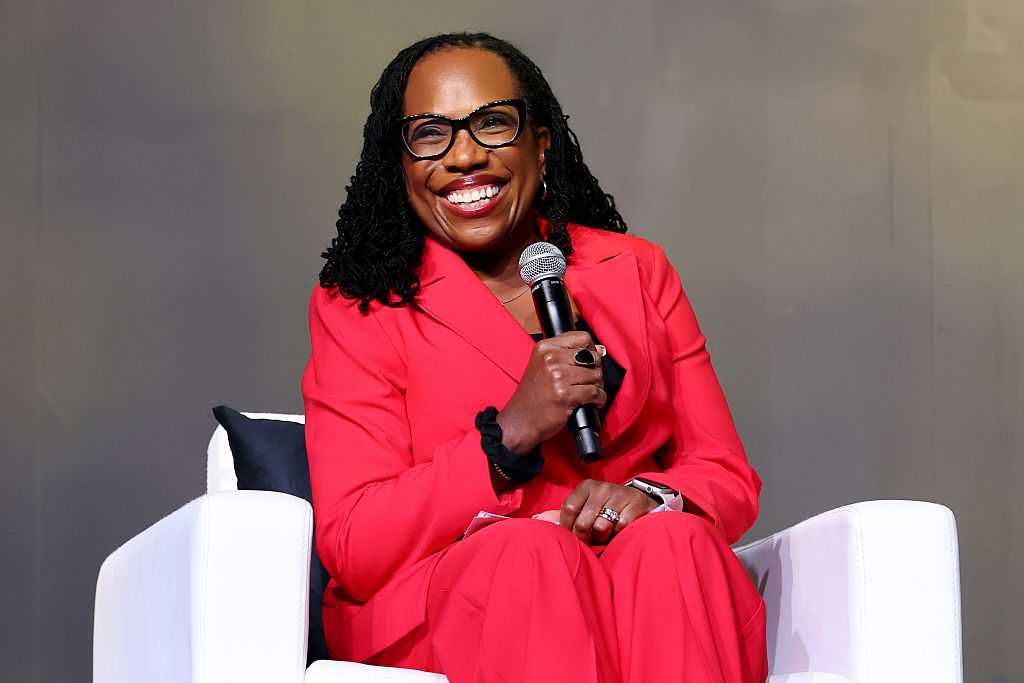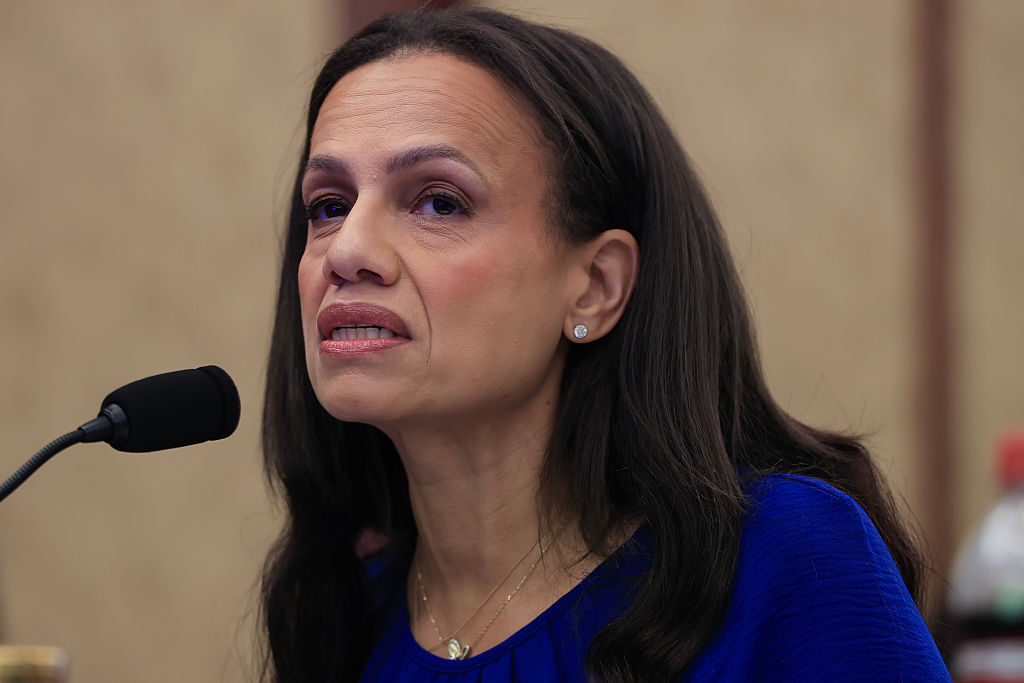The most surprising political development of the day yesterday did not come in one of the three states that held primaries. Instead, while voting was still ongoing in Florida, Arizona, and Oklahoma, news broke that Sen. Rand Paul, a Republican from Kentucky, had endorsed former New Mexico governor Gary Johnson in Johnson’s bid for a Senate seat of his own. Senator Paul has libertarian affinities, but Johnson is running as a big-L Libertarian. After two stints as the Libertarian Party’s presidential nominee, Johnson is now its Senate nominee in the state he once governed.
Is Paul delivering a vote of no confidence in his own party, the GOP? His father, Ron Paul, was the Libertarian Party’s nominee for president in 1988 between tenures as a Republican congressman from Texas. The son ran for the Republican presidential nomination last year, after his father had run for it in 2008 and 2012. The younger Paul seemed more serious than his father about investing in the GOP, not simply as a vehicle of convenience but as the more mainstream platform for libertarian ideas. I know from personal experience that many conservative Republicans had qualms about Rand’s loyalty to the party and questions about how libertarian his philosophy might really be. His decision to support Johnson in New Mexico — against the Republican nominee, Mick Rich, as well as the Democrat, incumbent Martin Heinrich — will almost certainly haunt Paul if he ever again seeks the Republican presidential nomination. But given how far short he fell in 2016, performing worse than his father in the GOP presidential contest, Rand Paul may be keeping his third-party options open. Should Rand Paul ever run for president as a Libertarian, he would stand a very good chance of costing the Republicans the election, even if Paul’s own chances of winning the White House would remain slim. That’s a powerful threat for a senator to wield in a Republican Party whose ideological future appears unsettled.
Tuesday’s primaries did little to settle the GOP’s identity crisis. On its face, it was a good night for President Trump. Candidates he endorsed prevailed against bitter competition in the Florida Republican gubernatorial contest and Arizona’s GOP Senate primary. Florida, the largest of the presidential swing states, is now set to see a fight for governor this November between Ron DeSantis, a Republican who was a member of the U.S. House of Representatives and has been notably supportive of Trump, and Democrat Andrew Gillum, who was endorsed in Tuesday’s primary by Sen. Bernie Sanders. The Florida governor’s race will be seen as a Trump-Sanders proxy war, and perhaps as a preview of American politics from 2020 onwards. Gillum, the African American mayor of Tallahassee, was an underdog going into Tuesday’s Democratic primary. His victory over former congresswoman Gwen Graham is the biggest win of the political season so far for the Sanders-aligned left wing of the Democratic. Party. Gillum supports ‘Medicare for All,’ the left’s answer to the failure of the Obamacare — a formula for moving toward even greater federal control over healthcare markets.
In Arizona, the results of the Senate primaries are more muted. (Florida had Senate primary contests as well, but the outcomes there were in no doubt: Governor Rick Scott claimed the GOP nomination, while incumbent senator Bill Nelson was unopposed on the Democratic side). Jeff Flake, the most outspoken Republican critic of Donald Trump in the Senate, is not running for re-election, and the race for the GOP nomination to replace him pitted two populist right candidates against a candidate favoured by pragmatists in the Arizona Republican Party. But the establishment’s favourite, Martha McSally, also had the backing of President Trump, and although she had once been critical of Trump, as a candidate for the Senate nomination she tacked in Trump’s direction rhetorically. She prevailed Tuesday against Sheriff Joe Arpaio, the 86-year-old icon of the anti-immigration movement, and Kelli Ward, a right-leaning Arizona state senator who had challenged John McCain’s re-nomination for the US Senate in 2016. Ward was the subject of much media ridicule in the last days of the campaign, after she said that McCain’s family timed the announcement that the dying senator would no longer receive medical treatment to damage Ward’s chances of election. McCain died a day after the announcement.
Ward may have been wrong about the McCain statement, but Arpaio’s role in the race might prompt questions. The octogenarian sheriff never had a realistic chance of winning the nomination, but his celebrity among right-wing voters was certain to bleed support away from Ward. McSally won on Tuesday with an absolute majority — just over 51 per cent — of the Republican vote, to Ward’s 28 per cent and Arpaio’s 20 per cent. Perhaps any hard right candidate would have lost to McSally, but with the right split between Ward and Arpaio, McSally’s odd of losing were minimal.
McSally will face a strange sort of Democrat in November: Kyrsten Sinema. Now in Congress as a Democrat, Sinema began her career in politics on the hard left as an activist for the Green Party. She is now a born-again moderate Democrat, in the mould preferred by Western states, or at least that’s the way she presents herself. Is Ward a Trump Republican or a more conventional Arizona Republican? Is Sinema a moderate Democrat or a camouflaged Green? As Arizona voters contemplate that question, the state’s governor, Republican Doug Ducey, has a choice of his own to make about who takes a Senate seat—in this case, not Flake’s, but McCain’s. Ducey easily prevailed in GOP gubernatorial primary Tuesday, but Democrats consider him vulnerable in November. He is not in much of a position to alienate the right wing of his party, no matter how much McCain (and Flake?) supporters might wish he would nominate a McCain-like replacement for the maverick senator.
Western Republicanism was once a distinct brand, and the two politicians held up by most conservatives as their greatest champions in the late 20th century — Barry Goldwater and Ronald Reagan — were both Westerners, as were two critically important Republicans about whom conservatives have decidedly mixed feelings, Richard Nixon and Sandra Day O’Connor. Western Republicanism had its libertarian side — something that Gary Johnson reflects — and was in general less overtly religious than the Southern-style conservatism that characterised the Republican Party from the Gingrich Revolution of 1994 in Congress to the end of the George W. Bush administration. In the Trump era, Western Republicans of a new kind, McCain and Flake — and soon, perhaps, senator Mitt Romney from Utah — have been Donald Trump’s most committed opponents within his own party. Even Arizona has moved by perceptible degrees in Trump’s direction: simply losing Flake and McCain would have ensured that, but even apart from their disappearance from the Senate, the state’s Republican Party has been becoming more populist. In the West as elsewhere, Trump Republicanism is still on the rise. And in the critically important Southern state of Florida, it appears triumphant.
But Rand Paul, for one, seems to be hedging his bets: he has been the president’s ally in attempting rapprochement with Russia, but his endorsement of Johnson suggests that should the right move in a libertarian direction once more, he will be prepared to capitalise on the opportunity. If Trump’s own past support for Democrats did not prevent him from winning the White House as a Republican in 2016, Paul may think, then endorsing an ex-Republican-turned-Libertarian for Senate is unlikely to be punished in GOP primaries in the future.
Pundits are fascinated by the possibility of an anti-Trump backlash in the GOP, whether it comes from libertarians or mavericks or neoconservatives. But there are few indications that such a backlash has any purchase with voters, and many signs that voters want the Republican Party to be the party of Trump. The outcome of Tuesday’s primaries only reinforces that conclusion. When it comes to command of the GOP, Donald Trump is simply mopping up what’s left of his enemies.

























